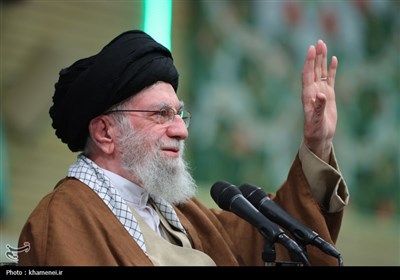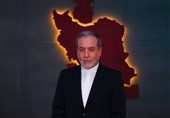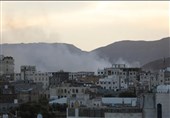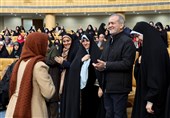Sound Bomb Targets House of PMU Commander in Baghdad
TEHRAN (Tasnim) – A terrorist blast reportedly targeted the house of a brigade commander of Iraq’s Popular Mobilization Units (PMU), also known as Hashd al-Sha’abi, in the capital, Baghdad.
The PMU announced the attack in a statement a copy of which was published by Iraq's al-Sumariah television network on Tuesday, saying, "A sound bomb explosion targeted the house of Lieutenant-Colonel Haqqi Ismail Amin (Abu Akbar al-Khalidi), commander of the 33rd Brigade in the Popular Mobilization Forces, in the al-Shu'ala area in the capital, Baghdad."
The statement added that "the explosion resulted in minor injuries to two family members, who were taken to hospital for treatment.”
The Iraqi media said the perpetrators of the terrorist act had escaped the scene.
The PMU, which is the largest coalition of Iraqi resistance groups, has played a key role in Iraq’s 2017 victory against the Daesh terrorist group.
Since the defeat of Daesh, however, the anti-terror group has been targeted repeatedly by the US military, prompting Iraqi resistance groups to step up efforts to push the US out of their country over its destabilizing activities. The PMU has also played a significant role in protecting Iraq’s sovereignty and territorial integrity against hostile and occupying forces.
The Iraqi parliament passed a law early last year, mandating cancellation of Baghdad’s permit for the US-led forces’ presence.
The law secured the approval of the legislative body’s overwhelming majority, which came in response to an earlier US drone attack that had martyred senior Iranian and Iraqi anti-terror commanders, Lieutenant General Qassem Soleimani and Abu Mahdi al-Muhandis.
Iraq’s resistance outfits have vowed not to lay down their arms until the US winds down its illegal presence and meddling in Iraq.
In a separate development on Tuesday, Iraq's Fatah (Conquest) Alliance political coalition said it will continue to fight the preliminary vote results and will not back down from protecting the ballots cast in Sunday’s general elections.
Ahmed al-Assadi, the spokesman of Fatah Alliance, said in a televised statement that the coalition would appeal against the results of the election as it had suffered a sharp decline from 48 to about a dozen seats in parliament.
Assadi said there were confusions and lack of transparency in the announcement of the results, adding that the alliance supports the country’s High Electoral Commission but would continue to file complaints and objections with regard to the vote outcome.
“There is a manipulation of votes by indirect parties that affected the results of our candidates,” he said. “We have submitted appeals with these results, and the process of manual counting and sorting of results must be taken into account.”
The spokesman also stressed that the alliance’s rejection of the results is not in opposition to any political faction.
Leader of the Fatah alliance, Hadi al-Amiri, had earlier denounced the results as “fabricated” and said he would reject them "whatever the cost."
According to the preliminary results of Iraq’s parliamentary elections, Fatah Alliance won 14 seats in 2020. It had secured 48 seats in the 2018 vote.
Senior cleric Muqtada al-Sadr’s bloc expanded its grip with 73 of the assembly's 329 seats.
The elections were originally planned to be held in 2020, but the date was brought forward in response to a mass protest movement that broke out in 2019 to call for economic reforms, better public services, and an effective fight against unemployment and corruption in state institution.
The vote also took place under a new election law that divided Iraq into smaller constituencies, another demand of the protesters, and allowed for more independent candidates.
Around 600 international observers, including 150 from the United Nations, were monitoring the voting process.






